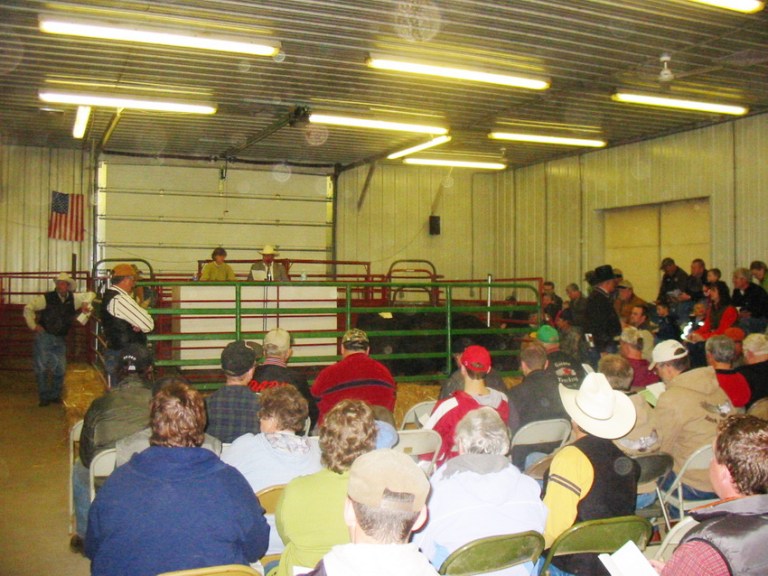St croix valley bull test – The St. Croix Valley Bull Test, a renowned program dedicated to genetic improvement in the beef industry, offers a comprehensive evaluation of bulls’ performance and potential. This rigorous test provides valuable insights into growth rate, feed efficiency, carcass quality, and more, empowering breeders to make informed decisions and enhance their breeding strategies.
The test’s meticulous procedures and comprehensive data analysis contribute to the advancement of beef genetics, fostering breed development and the production of superior animals for the industry.
St. Croix Valley Bull Test Overview: St Croix Valley Bull Test
The St. Croix Valley Bull Test is an annual event that evaluates the performance of young St. Croix bulls. The test is conducted by the University of Minnesota and the St. Croix Valley Bull Test Association.
The purpose of the test is to provide breeders with information on the growth, feed efficiency, and carcass quality of their bulls. This information can be used to make informed breeding decisions and to improve the genetic quality of St.
Croix cattle.
Test Procedure
The test is conducted over a 140-day period. During this time, the bulls are fed a high-energy diet and are monitored for their growth, feed efficiency, and carcass quality. The bulls are also evaluated for their temperament and structural soundness.
Test Results, St croix valley bull test
The results of the test are published in a catalog that is distributed to breeders. The catalog includes information on the bulls’ growth, feed efficiency, carcass quality, temperament, and structural soundness. Breeders can use this information to make informed breeding decisions and to improve the genetic quality of their St.
Croix cattle.
Participating Breeds and Bulls

The St. Croix Valley Bull Test welcomes a diverse range of breeds, each showcasing unique characteristics and genetic traits. The selection process for these bulls is rigorous, ensuring the highest quality and representation of their respective breeds.
Breeds of Bulls
- Angus
- Charolais
- Hereford
- Limousin
- Simmental
These breeds are renowned for their beef production capabilities, exhibiting exceptional growth rates, feed efficiency, and carcass quality.
Selection Process
The selection process for bulls participating in the St. Croix Valley Bull Test is meticulous. Bulls are carefully evaluated based on their performance data, genetic potential, and physical attributes. Each bull undergoes a comprehensive assessment that includes:
- Growth and performance records
- Ultrasound measurements for carcass traits
- Structural soundness and conformation
- Genetic analysis for desirable traits
Only bulls that meet the stringent selection criteria are admitted into the test, ensuring a high caliber of participants that represent the best of their respective breeds.
The St Croix Valley Bull Test, a renowned event showcasing top-tier bulls, serves as a testament to the resilience and strength of these magnificent animals. While their massive physiques may seem daunting, the burden they carry pales in comparison to the weight of a backpack filled with textbooks, laptops, and the myriad of supplies students lug around daily.
As we marvel at the power of these bulls, let us not forget the struggles of our own daily burdens, so aptly captured in the insightful article ” My Backpack Weighs a Ton “.
Test Procedures and Measurements

The St. Croix Valley Bull Test uses a combination of procedures and measurements to evaluate the performance and potential of participating bulls. These procedures are designed to assess the bulls’ growth, feed efficiency, and carcass quality, providing valuable information for breeders and buyers.
The test procedures include:
- Individual pen feeding:Bulls are housed in individual pens and fed a standardized diet to measure their individual feed intake and growth rates.
- Ultrasound measurements:Bulls are scanned using ultrasound technology to assess their carcass traits, including ribeye area, backfat thickness, and marbling score.
- Performance testing:Bulls are evaluated for their performance on a series of performance tests, including feed efficiency, average daily gain, and feed conversion ratio.
The measurements collected during the test provide a comprehensive assessment of the bulls’ performance and potential. These measurements include:
- Growth rate:Measured as the average daily gain (ADG) in pounds, which indicates the bull’s ability to convert feed into muscle mass.
- Feed efficiency:Measured as the feed conversion ratio (FCR), which represents the amount of feed required to produce a pound of gain.
- Carcass quality:Assessed through ultrasound measurements, providing information on the bull’s ribeye area, backfat thickness, and marbling score, which are important indicators of meat quality and yield.
The data collected from the test procedures and measurements are used to create performance profiles for each bull. These profiles provide valuable information to breeders and buyers, helping them make informed decisions about which bulls to use in their breeding programs and which bulls to purchase for their operations.
Data Analysis and Reporting
Once the testing period is complete, the data collected from the bulls are carefully analyzed to evaluate their performance and identify any potential areas for improvement.
The analysis process involves a combination of statistical techniques and expert judgment. The data is examined to determine the average daily gain, feed efficiency, and other relevant metrics for each bull. These results are then compared to industry standards and the performance of bulls from previous tests to provide a comprehensive evaluation.
Reporting and Dissemination
The results of the St. Croix Valley Bull Test are reported in a comprehensive report that is made available to participants and other interested parties. The report includes detailed information on each bull’s performance, along with analysis and commentary from industry experts.
The report is widely disseminated through various channels, including online platforms, print publications, and industry events. This ensures that the results are accessible to a broad audience of stakeholders, including breeders, producers, and researchers.
Significance and Impact of the Test

The St. Croix Valley Bull Test plays a pivotal role in the beef industry by providing a platform for evaluating and selecting superior bulls. Through its rigorous testing procedures, the test helps identify bulls with desirable genetic traits that contribute to enhanced beef production.By
assessing bulls for traits such as growth performance, carcass quality, and reproductive efficiency, the test provides valuable information to breeders and producers. This data allows them to make informed breeding decisions, selecting bulls that will improve the genetic makeup of their herds.
This, in turn, leads to increased productivity, profitability, and sustainability within the beef industry.
Genetic Improvement and Breed Development
The St. Croix Valley Bull Test serves as a catalyst for genetic improvement and breed development. By identifying bulls with superior traits, the test enables breeders to incorporate these desirable genes into their breeding programs. This targeted approach accelerates the development of breeds with improved performance characteristics, leading to higher quality beef products for consumers.Furthermore,
the test provides a standardized platform for comparing bulls from different breeds. This allows breeders to assess the relative strengths and weaknesses of different breeds, facilitating the selection of bulls that best meet their specific breeding goals and production systems.
Best Practices and Recommendations

Maximizing the potential of St. Croix Valley bulls requires adherence to sound management and breeding practices. This section provides valuable insights and recommendations to enhance the productivity and profitability of your operation.
Bull Management and Raising
Proper bull management ensures their well-being, performance, and longevity. Key best practices include:
- Provide adequate nutrition and pasture to meet their high energy requirements.
- Implement a regular deworming program to prevent parasitic infections.
- Provide access to clean water and shelter for comfort and protection.
- Regularly inspect bulls for injuries or illnesses and seek veterinary attention promptly.
Bull Selection and Breeding Strategies
The St. Croix Valley Bull Test results provide valuable information for informed bull selection and breeding decisions. Here are some recommendations:
- Select bulls with high average daily gain, feed efficiency, and carcass traits.
- Consider bulls with desirable maternal traits for heifer replacements.
- Utilize the test data to identify bulls that complement the strengths and weaknesses of your cow herd.
- Implement a breeding program that maximizes genetic diversity and reduces the risk of inbreeding.
Future Directions and Innovations

The St. Croix Valley Bull Test is continuously evolving to meet the changing needs of the beef industry. Future directions for the test may include:
Exploring innovative technologies such as genomic testing and data analytics to enhance the accuracy and efficiency of the test.
Data Integration and Collaboration
Integrating data from the bull test with other sources, such as farm management systems and industry databases, to provide a more comprehensive view of bull performance.
Enhanced Reporting and Analysis
Developing new reporting tools and data analysis techniques to make the test results more accessible and actionable for producers.
Expansion of Test Parameters
Expanding the test parameters to include additional traits, such as feed efficiency and carcass quality, to provide a more comprehensive evaluation of bull performance.
Key Questions Answered
What breeds of bulls participate in the St. Croix Valley Bull Test?
The test includes a diverse range of beef breeds, such as Angus, Hereford, Simmental, Charolais, and Gelbvieh.
How are the bulls selected for the test?
Bulls are carefully selected based on their genetic potential, growth performance, and structural soundness.
What measurements are collected during the test?
The test collects data on growth rate, feed efficiency, carcass quality, scrotal circumference, and other relevant traits.
How are the test results reported?
The results are disseminated through performance reports, field days, and industry publications, providing breeders with valuable information for making informed breeding decisions.